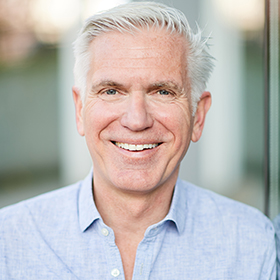Learn more about us.
Fostering Innovation Starts With Great Leadership | Business Essentials Insights

John Metselaar |Author
John is Professor of Management Practice in "Leading & Living Innovation" at Solvay Brussels School as well as Economy, Strategy, & Finance Center Leader, EMEA at The Conference Board.
.jpg)
Stay connected
Never miss the latest insights, blogs and news. Subscribe to our newsletter.
Several times a year, Solvay's Company-Specific task force organise tailored “Business Essentials” programmes for leading organisations such as Pfizer, Athora, VOKA, and Cap Innove. These initiatives include intensive workshops on key topics like innovation leadership, designed to equip participants with the tools and mindset needed to drive meaningful change. During one of our sessions, I give an intensive one-day workshop on innovation leadership. Here are a few insights about the creation of an innovation mindset.
The fact that the first word of this “Leading and Living Innovation” seminar is about leadership is no coincidence. I believe all significant advances in life start with leadership. While innovation also starts with leadership, it doesn’t end there.
We’ve come to live in a fast-changing world where “you need to do things to learn what to do”. This requires everyone to get involved in the innovation game: it needs to be a collective effort at all levels of the company. Hence, leaders need to actively encourage an innovation mindset.
But how?
Safety and accountability to create the “Learning Zone”
Creating an innovation mindset combines accountability and psychological safety. Making people feel safe and at the same time rendering them accountable might seem paradoxical, but it is not. Accountability is about owning up to what you do: your achievements as well as your mistakes. The key here is how you react to people’s mistakes. Holding them accountable is not the same as blaming them. This is where psychological safety comes into the picture. Your people need to feel they can make mistakes and accept responsibility for them without being afraid of a backlash.
Combining accountability with psychological safety creates a learning environment, a culture where it is OK, or, rather, expected, to make mistakes, because this is how you learn. Indeed, curiosity and learning are the basis of innovative ideas: these are not born perfect, but rather carefully crafted during a process of trial and error. When people know they can safely experiment, their creativity will flow and they will learn, grow and innovate.
In such a culture, leaders are not there to tell people what to do, but rather to create and support learning zones in their organization. Leadership is a responsibility, not a privilege, and definitely not a position. Leaders are there to serve, not to dictate.
Put your mind, heart and body into it
What makes a great leader – one who can effectively create this culture of innovation? I think it must happen on three levels:
- Mind: you have to develop a growth mindset, become open to new ideas, be ready to experiment, and let your people do the experimentation and learn from it.
- Heart: you have to accept your vulnerabilities, stop hiding them, and lay down your mask of “I know it all and am in control”. For most managers, this requires tremendous courage - but you need to lead by example. Only then will you be able to create a culture of authenticity, openness, and risk-taking around you!
- Body: You have to walk the talk, to permanently observe not only how you talk to others, but also how you behave during the interaction – what kind of messages you send through your behaviour. Being in touch with yourself allows you to be more in touch with others!
The learning game
I also bring my philosophy of “engagement” into my teaching sessions: I try to “lift people into the learning game”.
To achieve this, I create an environment of psychological safety, “the shared belief by the group that the classroom is safe for interpersonal risk-taking”. Life is more interesting outside your comfort zone, and this attitude encourages the participants to live the mind-heart-body philosophy.
I combine this feeling of safety with an appropriate sense of accountability through interactivity during the lectures, and by using relevant, illustrative case studies. The cases are chosen from different industries to open the minds and allow for horizontal learning. The students imagine and analyze real-life applications of the subjects introduced during the lectures. They explore them in depth in small groups and report their conclusions to the plenary.
This allows higher-order learning by closing the circle to grasp the core concepts. It’s a very powerful tool.
The “So what?” question
This approach allows me to pass on a large amount of actionable insights, even in relatively short sessions. After every module, I always ask the “So what?” question. How do the participants plan to apply what they have learned to their daily lives? How will they measure their achievements and progress? This gives them time to reflect on the key insights and allows them to internalize what it means for them.
When a company like Pfizer or the rest of our clients invest so heavily in training, developing, and growing its people, it is critical to make sure that the knowledge they acquire will also have a direct, tangible impact inside the company.
Want to know what Solvay Brussels School can do for your company? Request a tailor-made programme!
Stay connected
Never miss the latest insights, blogs and news. Subscribe to our newsletter.

Newsletter subscription
Never miss the latest insights, blogs and news
Subscribe to our newsletter and never miss the latest insights, events and blogs.
What other people like
Related blogs

Patrick is the Academic Director for Management of the CSP programmes at Solvay Brussels School - Lifelong Learning
22/03/23

Marianna is the Content & Social Media Coordinator at Solvay Brussels School - Lifelong Learning.
29/11/19

Marianna is the Content & Social Media Coordinator at Solvay Brussels School - Lifelong Learning.
5/08/19


